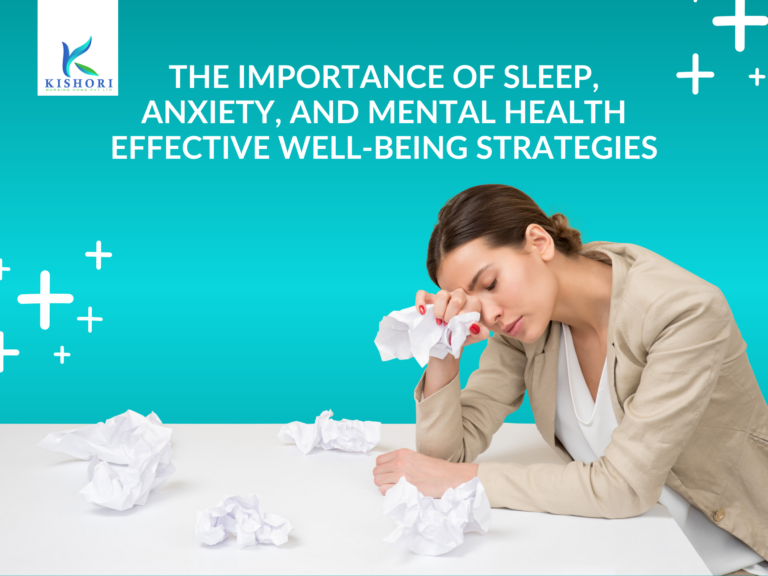
The Importance of Sleep, Anxiety, and Mental Health Effective Well-Being Strategies
Introduction:
In today’s fast-paced world, the significance of quality sleep for mental health cannot be overstated. Sleep deprivation not only impacts our physical health but also has profound effects on our mental well-being, potentially leading to serious conditions such as anxiety and depression. Understanding the intricate connection between sleep and mental health is pivotal to fostering a healthier mind and body.
Understanding the Sleep-Anxiety Relationship:
Sleep and anxiety have a symbiotic and complicated relationship. Anxiety is often accompanied by sleep disorders, with anxious people having difficulty falling or staying asleep, resulting in sleep deprivation. Insufficient sleep, on the other hand, exacerbates pre-existing anxiety symptoms by raising cortisol levels, the stress hormone, causing symptoms such as headaches and fatigue that can lead to anxiety.
Impact of Sleep Deprivation on Anxiety and Depression:
According to research, a lack of sleep can increase irritability and have an impact on brain areas associated with anxiety disorders. While sleep deprivation does not directly cause anxiety, it can exacerbate existing anxiety. Additionally, poor sleep quality can contribute to depression by affecting one’s mood and cognitive functions, amplifying feelings of sadness or hopelessness.
Can sleeping cause panic attacks?
Sleep deprivation, when combined with other anxiety risk factors, can contribute to panic attacks. Poor sleep causes increased physical arousal, such as rapid breathing, which can trigger panic attacks in vulnerable people, exacerbating feelings of acute fear or worry.
Strategies to Mitigate Sleep Deprivation and Anxiety:
Addressing sleep and anxiety disorders requires proactive measures. Establishing a consistent bedtime routine, creating a sleep-conducive environment, engaging in regular exercise, and seeking professional help are vital steps toward better sleep and mental health.
- Developing a Bedtime Routine: Consistency in sleep patterns, aiming for 7 to 10 hours of sleep, and engaging in relaxing activities before bed, like a warm bath or reading, aid in quality sleep.
- Optimizing Sleep Environment: A cool, dark, and quiet room promotes better sleep quality. Utilizing tools like fans or sound machines to minimize disturbances enhances the sleep environment.
- Incorporating Exercise: Regular physical activity, particularly in the morning, helps alleviate anxiety and stress. Activities like yoga or bodyweight exercises contribute to better mental health.
- Seeking professional guidance: Consulting mental health professionals, such as therapists or psychiatrists, is crucial for tailored treatment plans and appropriate medication to manage persistent sleep and anxiety disorders.
Conclusion:
Recognizing the interconnectedness of sleep, anxiety, and mental health underscores the importance of prioritizing healthy sleep habits and seeking professional assistance when needed. By implementing lifestyle changes, creating conducive sleep environments, and accessing proper treatments, individuals can proactively enhance their overall well-being.
For anyone looking for solutions to sleep deprivation and anxiety, combining these strategies with professional guidance and appropriate medications can pave the way to a healthier mind and body. Consult with our doctors at Kishori Nursing Home for the best medical care for your treatments.
Kishori Nursing Home
Bhatli Chowk, Bargarh, Odisha, 768028
Phone: +91-9040-246-332 or +91-9437-487-332
Email: kishorihospital@gmail.com

